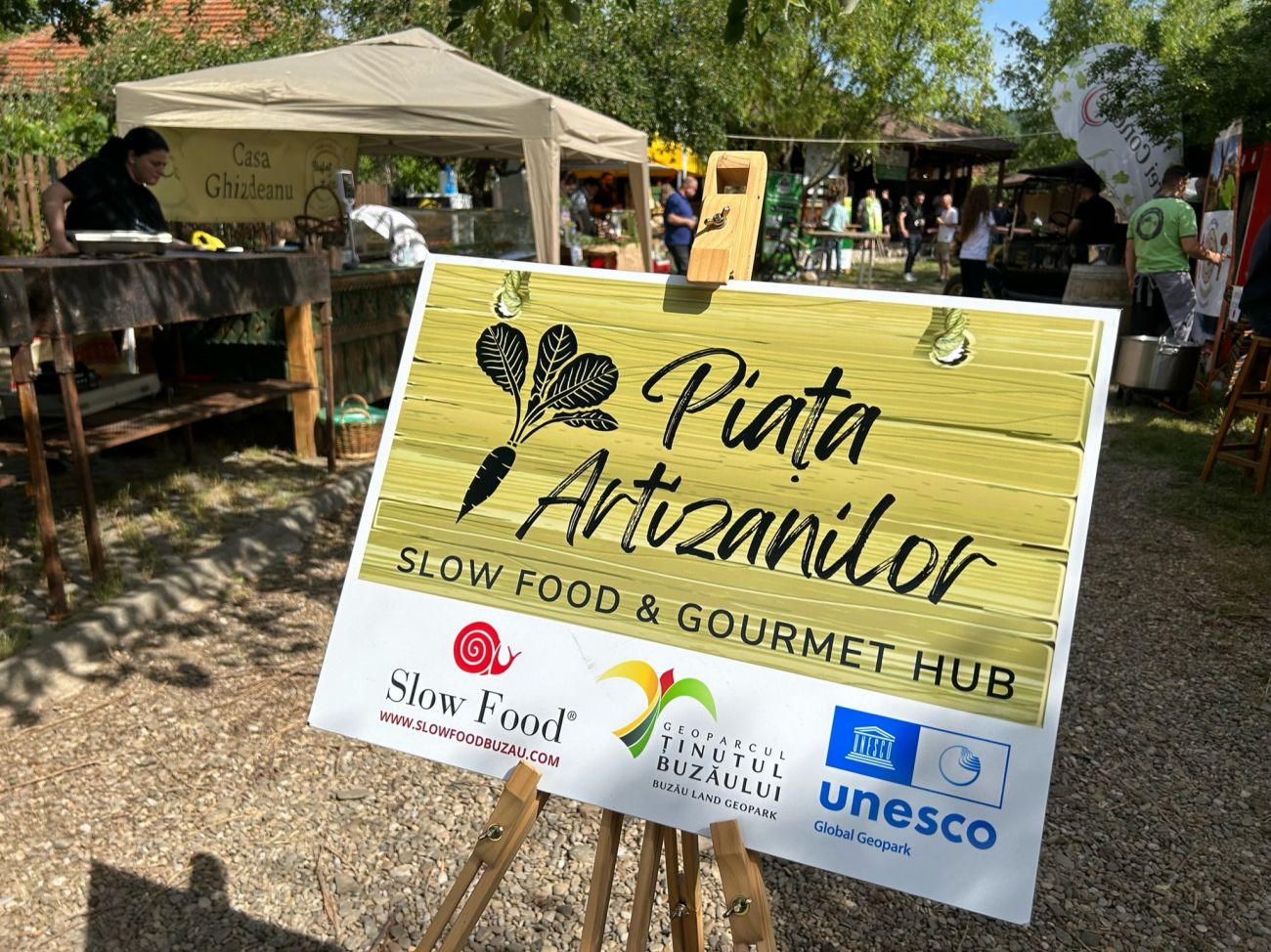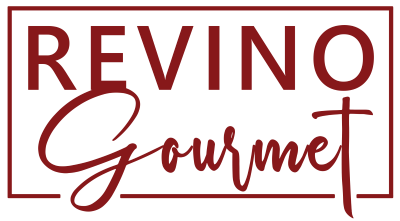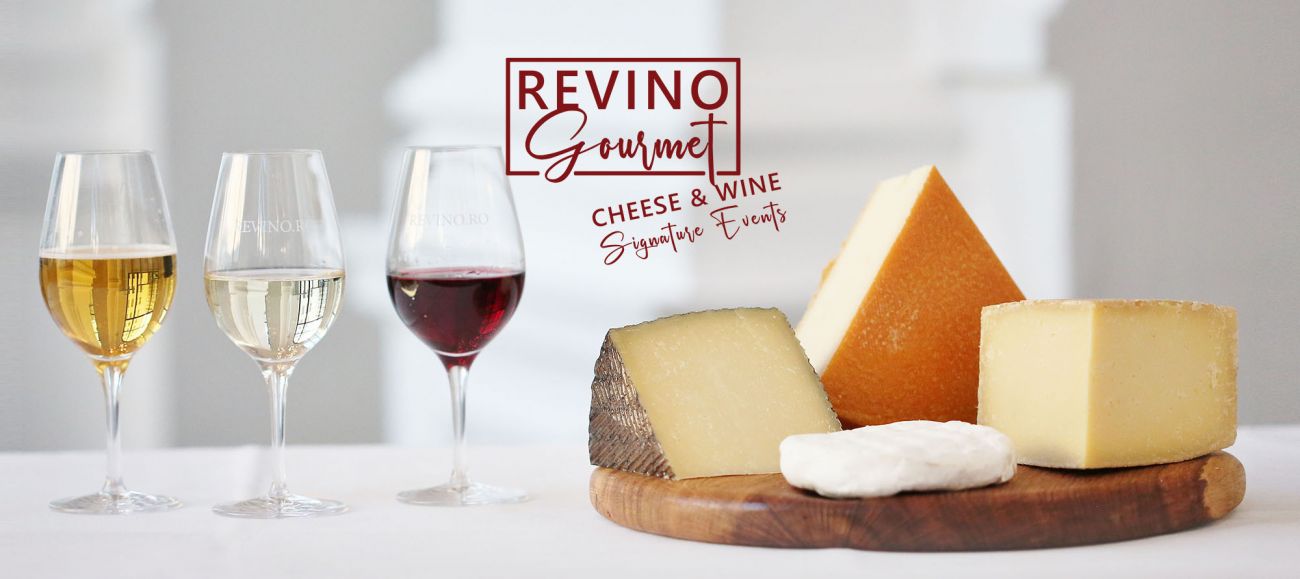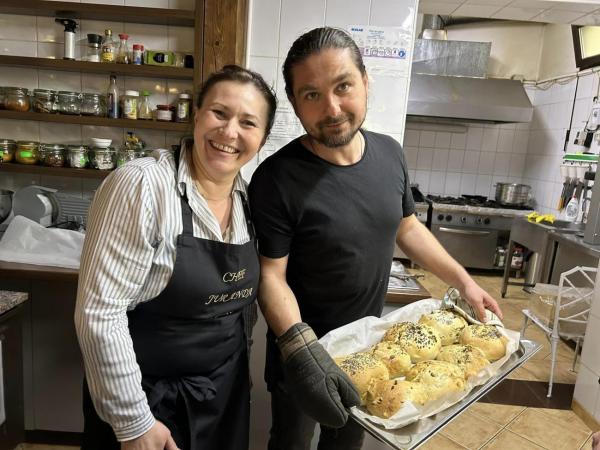
At the end of May 2024, the "Slow Food Romania Conference" was held for the first time in Buzău. This event brought together Slow Food communities from all over Romania and enthusiasts of artisanal food from across the country. Complementing the conference, the Slow Food Buzău Community organized the fourth edition of the artisanal producers' fair in the Artisans' Square in Berca, located at the entrance to the UNESCO International Geopark "Ținutul Buzăului." This event has been drawing more tourists with each edition.
We talked about the significance and development of a local Slow Food community with Thorsten Kirschner, co-founder and spokesperson of the Slow Food Buzău Community. Thorsten is also a local entrepreneur who has turned Conacul Grigorescu into a tourist attraction in the village of Rătești, also located in Buzău County.
What was the main reason for initiating the Slow Food Buzău movement?
The main reason for starting the Slow Food Buzău movement was to promote healthy and sustainable eating, support local producers, and educate the community about the importance of preserving local culinary traditions. We aim to create a network that encourages the consumption of natural and high-quality products, thereby contributing to the well-being of the community and protecting the environment. Through these efforts, we hope to see Buzău recognized as a top culinary tourism destination.
What are the main objectives of the Slow Food Buzău movement?
- Promoting Healthy Eating: Encouraging the consumption of natural and high-quality foods produced locally by farmers and artisans.
- Supporting Local Producers: Helping farmers and local producers preserve their traditions and sustainably develop their businesses.
- Community Education: Organizing educational activities and workshops to raise awareness about the importance of healthy eating.
- Biodiversity Conservation: Promoting the use of local, clean, and tasty products to protect biodiversity and reduce negative environmental impacts.
- Creating a Support Network: Forming a community of like-minded individuals who share values related to food, environment, and sustainability, facilitating the exchange of ideas and resources.
Which local products are promoted through the Slow Food movement? How did you find and select them?
Our community features a diverse range of products, including natural honey, medicinal teas, artisanal drinks, organic wines, reinvented jams, fresh fruit in honey, modern mead, cold-pressed sunflower oil, sheep sausages from Poșta Câlnăului, aged cheeses, sourdough bread, vegetable spreads, saffron, distilled beverages, and orchard plums. Often, we connect through mutual acquaintances or find each other at the right moment. Additionally, we conduct online searches, reach out, invite discussions, and determine if they fit the #slowfood concept (clean, tasty, fairly priced products). It's important for producers to be open to the concept and integrate it into their businesses.
How does the local community participate in Slow Food initiatives?
All initiatives and ideas are shared with the community. For projects, we meet to discuss what needs to be done, request support from those who can offer it, and mobilize for action. We promote the community through social media, press releases, and events where we participate as exhibitors or as a community. When necessary, we improve visual aspects (new labels, logos, etc.).
For educational projects, we offer Green Week programs involving network restaurants and guesthouses. Some provide lunch, others help with educational activities, and some contribute products to gift bags given at the end of the day. Products are also featured in the "Buzău Artisanal" crates, a project promoting the community by combining products in wooden crates, giving all members visibility.

What feedback have you received from the public and producers after launching the Artisans' Market?
Feedback has been very positive from both participants and producers. Participants have shared on social media and directly with us that they felt a unique, bohemian atmosphere, appreciated our organization, and enjoyed direct contact with quality product producers. Producers have experienced sales from the first edition, gained visibility, received press coverage, and found collaborators.
What concrete results have you observed from joining the Slow Food movement?
The four editions of the Artisans' Market event come to mind first. With each edition, we've seen an increasing number of exhibitors, even having a waiting list, and notable visitor numbers, reaching 10,000. Sales driven by the event are also significant.
Media appearances in Romania, Germany, and the international Slow Food newsletter have built beneficial visibility for producers, the community, and Buzău, which is increasingly recognized as a culinary tourism destination.
Additionally, over 400 children participated in educational workshops through the Green Week project, gaining interactive education on healthy eating and environmental protection, as well as tasting clean, flavorful food.
The "Buzău Artisanal Crate" project has also helped make our products, community, and Buzău location known.
You launched the Farm to Table network, connecting local restaurants with producers. How does this project work?
Farm to Table has been on our minds for some time. We're still in the early stages, testing and seeing positive feedback. People are willing to pay for reinterpreted menus with seasonal, fresh food from local ingredients. This way, consumers discover local products, learn producers' stories, connect more with the source, and understand the #slowfood concept. We aim to expand this project, needing reliable, quality food sources (meat, cheese, milk, eggs, etc.) to supply guesthouses and restaurants, creating a secure supply chain.
How do you promote the idea of a sustainable culinary destination?
Key elements include local and seasonal foods obtained through sustainable agriculture, using eco-friendly farming practices like crop rotation, compost use, and minimizing pesticides and chemical fertilizers. Biodiversity conservation by protecting native species and breeds is also vital.
Education and awareness are emphasized through guided tours, workshops, and tastings, informing tourists about sustainability. Promoting a sustainable food culture through menus explaining the provenance and production methods of ingredients is also crucial.
Community collaboration is essential, involving the local community in tourism development and management, and fostering partnerships between restaurants, local markets, and farmers to create a sustainable supply chain.
How are tourists and visitors educated about Slow Food principles in Buzău?
Currently, we educate tourists through social media and event appearances where we represent the community. However, the best education is practical, where tourists discover a producer or product in Buzău. It's important for them to understand the motivation, values, people, and work behind #slowfoodbuzau. Our website, offering various activities and culinary offers, also plays a crucial role.
What impact has promoting Buzău as a sustainable culinary destination had on tourist numbers?
We don't yet know the impact, as the tourism market is very volatile at the moment.
How are small local producers supported to adapt to sustainable tourism requirements?
- Access to Markets and Networks: Creating events and fairs where producers can sell directly to consumers and tourists. Facilitating access to distribution networks prioritizing local and sustainable products.
- Promotion and Marketing: Developing campaigns highlighting the quality and authenticity of local products. Helping producers tell their stories and communicate the sustainable values of their products.
- Collaborations and Partnerships: Encouraging collaborations between producers, local restaurants, hotels, and tourism agencies to create tourism packages featuring local and sustainable gastronomic experiences.
What future plans do you have to continue and expand Slow Food initiatives?
We are currently evaluating all our activities over the past years to understand what works well and what can be improved. A comprehensive analysis is necessary for future project decisions.
Certainly, the Artisans' Market and the Slow Food Romania Conference will continue, as will educational projects and the "Buzău Artisanal Crate." It's important to implement ideas that contribute to visibility, education, cooperation, and collaboration.
We've created an association and are trying to build a sustainable organization with three employees (community manager, agriculture manager, and grants and education manager).
Revino Team
10/06/2024





























